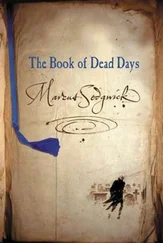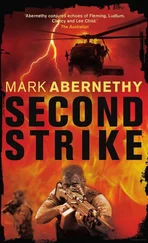Mark Abernethy - Double back
Здесь есть возможность читать онлайн «Mark Abernethy - Double back» весь текст электронной книги совершенно бесплатно (целиком полную версию без сокращений). В некоторых случаях можно слушать аудио, скачать через торрент в формате fb2 и присутствует краткое содержание. Жанр: Триллер, на английском языке. Описание произведения, (предисловие) а так же отзывы посетителей доступны на портале библиотеки ЛибКат.
- Название:Double back
- Автор:
- Жанр:
- Год:неизвестен
- ISBN:нет данных
- Рейтинг книги:5 / 5. Голосов: 1
-
Избранное:Добавить в избранное
- Отзывы:
-
Ваша оценка:
- 100
- 1
- 2
- 3
- 4
- 5
Double back: краткое содержание, описание и аннотация
Предлагаем к чтению аннотацию, описание, краткое содержание или предисловие (зависит от того, что написал сам автор книги «Double back»). Если вы не нашли необходимую информацию о книге — напишите в комментариях, мы постараемся отыскать её.
Double back — читать онлайн бесплатно полную книгу (весь текст) целиком
Ниже представлен текст книги, разбитый по страницам. Система сохранения места последней прочитанной страницы, позволяет с удобством читать онлайн бесплатно книгу «Double back», без необходимости каждый раз заново искать на чём Вы остановились. Поставьте закладку, и сможете в любой момент перейти на страницу, на которой закончили чтение.
Интервал:
Закладка:
‘Bad luck about fax, eh?’ came a voice from behind him, and Mac spun around slightly too quickly, coming face to face with the bloke from Raoul’s bus, the one with the Malaysia Airlines tags all over his bags.
‘But, you know, I have fax in my room. Just need to ask, okay?’ said the bloke, smiling conspiratorially and extending his hand.
‘Rahmid Ali,’ he said, the big Malay face creasing at the sides and bursting with the brightness of a lot of white teeth. ‘I saw you this morning, yes?’
‘Sure,’ smiled Mac, standing and accepting the shake. ‘Richard Davis.’
‘You tell off the American, right?’
‘You never really tell off an American, Rahmid,’ said Mac. ‘You just get ignored rather than bombed.’
Rahmid Ali laughed so heartily that Mac could see his pink tonsils. Gesturing to the spare seat beside him, Mac watched as the Malay sat with a small bottle of Perrier and a glass. He was impeccably dressed in cream linens, glowing with fresh grooming and still smelling of Polo. He was also Indonesian intelligence – BAKIN, probably, decided Mac. Since Anglo visitors had a reputation for thinking all Asians looked alike, Indonesian spooks often posed as Malaysians to get closer to their targets, hence Rahmid Ali’s display of Malaysia Air paraphernalia. In KL, the Malaysian spooks pretended to be Thai, in Manila the Filipinos masqueraded as Indonesian and in Phnom Penh the Cambodians acted Thai or Vietnamese.
‘You really got a fax in your room?’ asked Mac.
‘Sure,’ winked his new friend. ‘I got sat phone, right, and it plugs into mini-fax. If you need to receive fax, just give them my number – I won’t tell.’
Nodding, Mac took the Andromeda IT Services business card from Ali, on which the satellite phone and fax numbers had helpfully been underlined.
Above them, on the first-floor interior balcony of the hotel, a man was shouting. Looking up, Mac and Ali saw a short, badly dressed Korean yell into a mobile phone while remonstrating with his cigarette hand.
‘I no care – I no care ’bout that!’ the bloke yelled, punctuated by awkward and frequent drags on his smoke. ‘Why you think I care? That your probrem, okay? I no care.’
Hearing the tone, Mac’s hackles went up. All over Asia, Korean businesspeople spoke to their associates and customers as if they were the lowest form of life, and every time Mac had to infiltrate a business and charm people like the one yelling on the balcony, he’d sworn it’d be his last.
Turning back to Rahmid Ali, Mac shared a quick laugh with him. The Koreans were something else.
‘I don’t know about the fax,’ said Mac. ‘Where did you say you were from?’
‘Kuala Lumpur,’ smiled Ali.
‘Well, in KL it may be okay to break the law, but you know something?’
‘What?’
‘The Indonesians have the fairest laws in South-East Asia and I’m happy to support them in their efforts to maintain a civil society.’
Rahmid Ali’s face slowly sank from its top-marketing smile to a contemptuous curiosity. ‘Yes, Mr Davis,’ he finally managed. ‘I think I see your point.’
Draining the Bintang, Mac stood to go. ‘Nice meeting you, Rahmid,’ he said, shaking the spy’s hand.
‘I’m sure we’ll meet again,’ said Ali, already recovering his professional demeanour.
Rahmid Ali was going to stand off for a while, thought Mac, but as he walked out of the garden he could feel the other man’s eyes burning into his back.
CHAPTER 10
The offices of PT Watu Selatan were two blocks from the Turismo, so Mac decided to walk it. He noticed that the locals shrank back into the darkness of shops and alleys as he moved through the dusty colonial streets, probably scared off by the rising violence from the pro-Indonesian militias. In many of the poorer parts of South-East Asia, visiting Westerners were the ones fearing violence or crime. In Dili, the fear was something endured by the citizens – a dull acceptance of terror, the likes of which Mac had experienced in Phnom Penh at the start of his career.
Mac hadn’t been in Dili for a couple of years, but it seemed to be the same old story: locals who talked to a Westerner or laughed with a Westerner were harassed so badly by the cops or spooks that they learned to behave in a purely perfunctory way towards foreigners. There were daily reminders of the ramifications of breaking with this code floating in the harbour or washed up on the city beaches, minus their heads and hands. Even Mac’s mobile phone made him feel slightly guilty. There was a Telkom Indonesia cellular network in East Timor, but it was mainly used by Indonesians and visitors. Any local found with a mobile phone had a good chance of enjoying a few nights’ stay in the Brimob compound, where calls to their mother might be interpreted as aiding the Falintil guerrillas.
As a blue Land Rover Discovery slipped past, Mac noticed the expensively dressed Westerners behind the tinted glass and the white UN letters on the door. He had them as UNAMET scrutineers, the United Nations team that was going to oversee the independence ballot in two weeks. The UNAMET mission had divided opinion in DFAT. People like Mac couldn’t see the point in sending a ballot-scrutiny team into a place as repressed as East Timor where pro-independence figures and their families were already being tortured and killed by the Indonesian Army and its militias. What East Timor needed was an armed UN peacekeeping mission to allow everyone to vote, and Mac’s chance meeting with Sandy Beech at Parliament House had simply confirmed his opinion. The other view in DFAT – supported by the Australian government – was that the Indonesian military’s harassment of pro-independence Timorese was having a calming effect on the province and it was premature to talk about UN peacekeepers.
The picture was made more complex by the history of Falintil, the Timorese guerrilla army that had been fighting the Indonesian invaders since 1975. As Mac had pointed out to the National Security Committee members, Falintil had Marxist-Leninist roots, and many Indonesians and Australians dismissed them as ‘commies’, which diluted their credibility.
Turning right into a wide avenue, Mac saw the PT Watu Selatan building right across the road from its real owners, the Indonesian Army. Olive-green jeeps called kijangs and trucks were parked on the street in front of the army headquarters, the large red and white flag of the Republic flying over the modest front steps. Regular soldiers wearing what looked like badges of the 744 Battalion lounged in the shade, leaning on their M16 straps and eyeballing the locals who, like Mac, walked on the other side of the street.
Stopping at the swinging glass doors of the Watu Selatan office, Mac noticed a white recent-model Toyota Camry parked in front of the military headquarters. Three Javanese men sat in the car, a fourth leaning into the front passenger window, his large forearms across the roof of the Toyota. The standing man’s head came up and then the other faces turned as one to stare at Mac, their black sunglasses creating a comical look, like a 1960s press photo of the Rat Pack in Vegas. Mac had them as SGI – an intelligence taskforce that was working on the ‘East Timor problem’. It was supposed to consist of the various intelligence outfits from the armed forces but in reality it was dominated by Kopassus intel. While Kopassus was the special forces group within the army, its intelligence arm was virtually a secret society: they wore plainclothes and were distrusted by all arms of the military, the police and intelligence agencies.
Attempting a smile but failing, Mac pushed into the air-conditioning of the Watu Selatan office, glad to be out of the tropical heat and away from the glare of the boys from intel.
Читать дальшеИнтервал:
Закладка:
Похожие книги на «Double back»
Представляем Вашему вниманию похожие книги на «Double back» списком для выбора. Мы отобрали схожую по названию и смыслу литературу в надежде предоставить читателям больше вариантов отыскать новые, интересные, ещё непрочитанные произведения.
Обсуждение, отзывы о книге «Double back» и просто собственные мнения читателей. Оставьте ваши комментарии, напишите, что Вы думаете о произведении, его смысле или главных героях. Укажите что конкретно понравилось, а что нет, и почему Вы так считаете.












